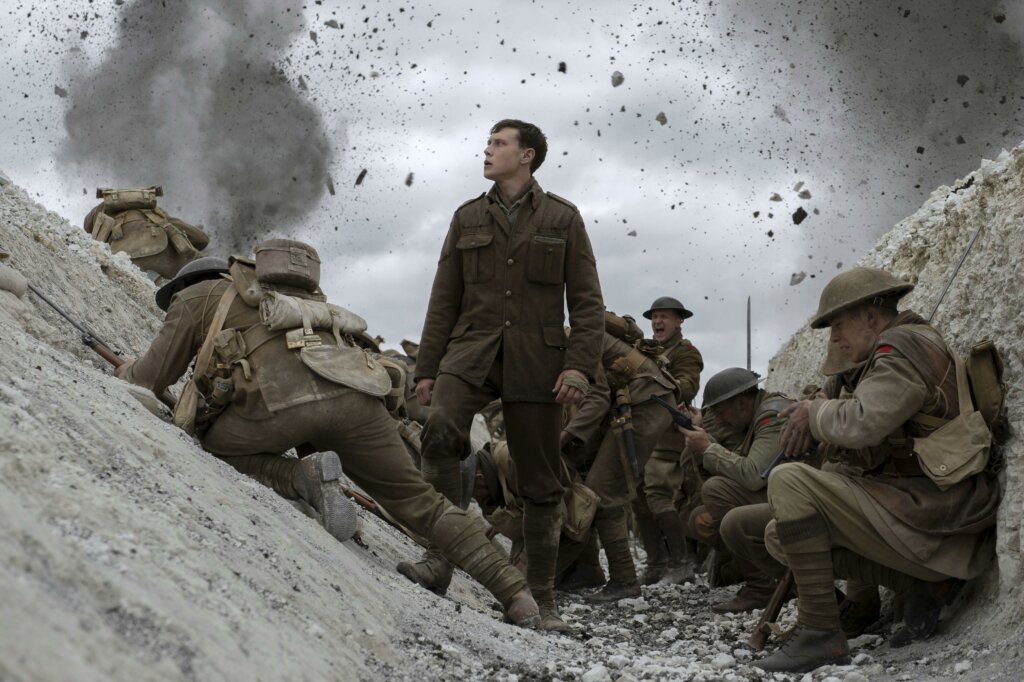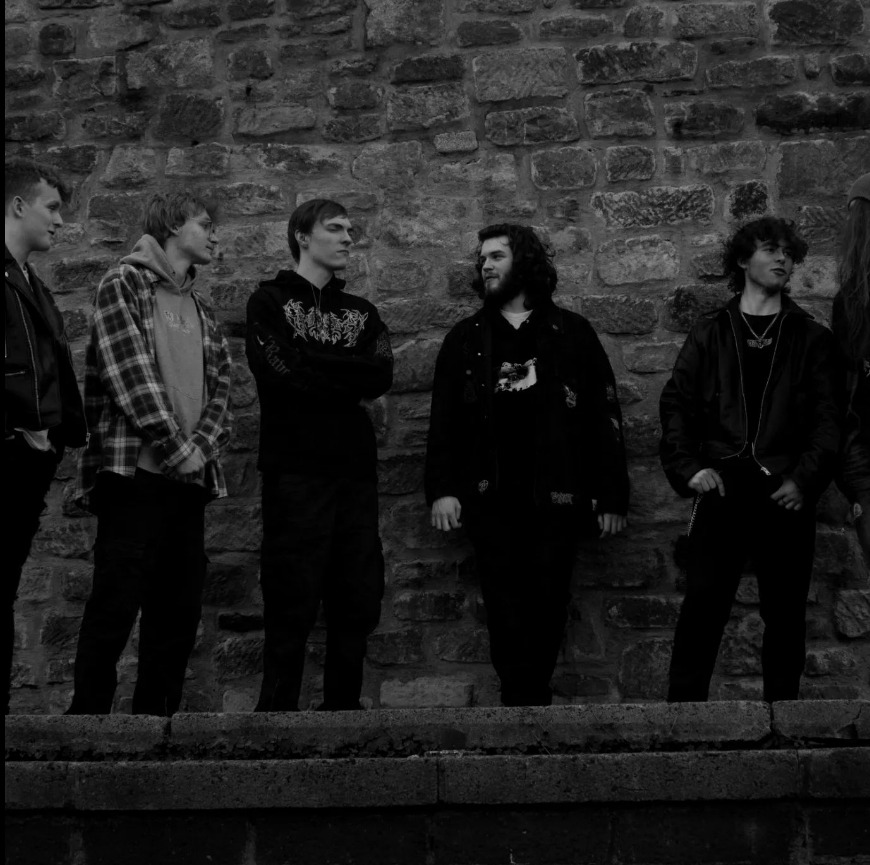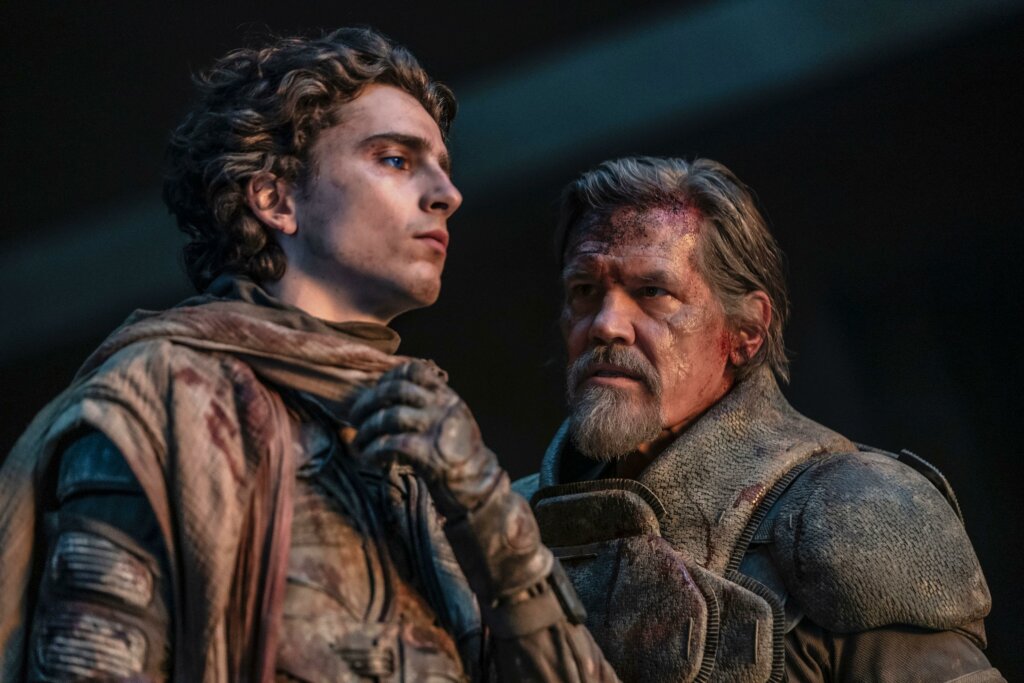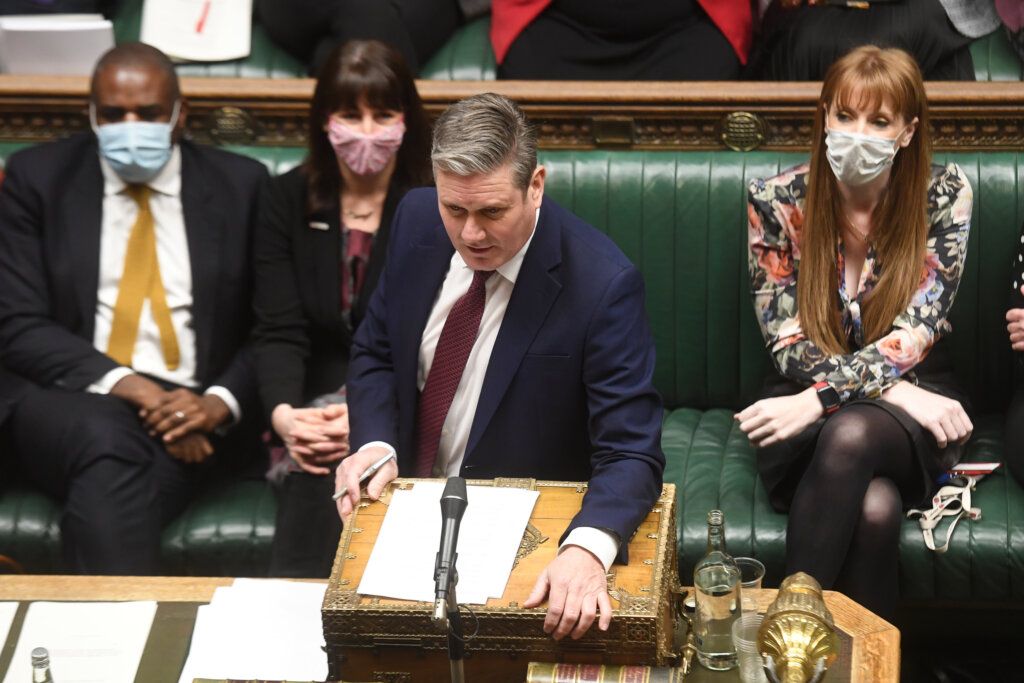1917- The Journey of the Last Man Standing
Written by Erin Jones on 17th February 2022

Within an age where war rules all, where death penetrates the present and haunts the living, two men are forced to face their most eminent enemy: racing against time.
“Down to Gehenna, or up to the Throne / He travels the fastest who travels alone,” two lines acquired from Rudyard Kipling’s The Winners to perfectly encapsulate the sacrifice, bloodshed and promise of honour that characterises war. Spoken with an air of sincerity and solemnity, these are the final words of General Erinmore (Colin Firth) to our two protagonists in 1917 – Lance Corporals Blake and Schofield – a note of both willing and warning towards the journey they are verging. Where 1600 lives depend on two men crossing enemy lines, pressure mounts as heartbeats thunder; the countdown to dawn has begun, and the sole incentive is survival.
Originally released on December 4, 2019, scoring an incredible No. 1 at the box office and the winner of three Oscars, this stellar wartime hit continues to thrive on platforms such as Netflix and Amazon Instant Video – three years after its debut in cinemas.
Epically filmed (or seemingly so) with the highly adventurous one-shot take, the film incorporates director Sam Mendes’ grandfather’s first-hand tales alongside the gloriously ruinous and ghostly scenery of No Man’s Land and Écoust-Saint-Mein ablaze, both captivating his audience and charming them with the delightful wit of Blake (Dean Charles- Chapman) while admiring the courageous wisdom of Schofield (George Mackay). An unlikely pairing, both characters appear as literary foils – with Blake concerned with his growing hunger and the horrendously funny wartime tales while Schofield is patient and apprehensive, cautious of the surfacing fraught possibilities of the journey ahead. Yet they have what war strives to destroy: companionship in the hour of despair.
Over the course of the movie, death becomes a lurking shadow hovering just beyond reach – a constant reminder of the grief and emptiness that the nation collectively suffered, and the price of freedom humanity often takes for granted. An unexpected symbol of this sacrifice, blooming blossom trees mercilessly slaughtered by German soldiers catch the admiration of Blake, who becomes enchanted by the idea of the old seeds rotting to nourish the new, flourishing trees in the coming years. From death bleeds new life – a bittersweet motif that justifies war.
Among a narrative led by trepidation, score composer Thomas Newman adopts slow and heavy violin melodies alongside sorrowful, ambient electric sounds to execute the atmosphere of intense brooding and anticipation, elevating 1917 into a movie that refuses to be “put in a box”. Like a loaded gun, these pieces explode into dramatic melodies of sentimentality, particularly in moments of clever parallelism between Blake and Schofield.
In a moment of true selflessness, Blake exerts admirable bravery within rescuing Schofield from the chalky white rubble of a collapsing German trench; a favour later mirrored as Schofield is desperate in his attempts to keep Blake alive after suffering a fatal stab wound.
“Am I dying?”
“Yes, yes I think you are.”
As the sombre string piece fades out against Blake’s dying breath, this heart-wrenching moment acts like a bullet to the back with the realisation finally sinking in: this war will truly end with the last man standing. Embracing the unfaltering confidence of Blake, Schofield abandons his fear and sheds his worry: to save the lives of 1600 men would be enough to ease his guilt of failing to save one.
Enduring the stealth of enemy fire and all elements of disquietude, Schofield conquers the unforgiving journey of pain, panic and perseverance, emerging from perilous, raging waters towards the vibrancy of Croisilles Wood, enchanted by the sound of a lone soldier singing of woe, and finally towards the labyrinthine trenches winding towards the firm truths of Colonel Mackenzie (Benedict Cumberbatch).
“I hoped today might be a good day. Hope is a dangerous thing.”
Extracting the honesty from the valiant success of Schofield, Colonel Mackenzie conveys a poignant self-awareness: lives in this battle alone may have been protected, but this is nothing compared to the millions of lives prematurely cut short by this “war to end all wars”. As a 21st century audience, we feel belittled and restless towards the veracity of this fact, but most importantly we secure faith in humanity to use this awareness as a power to prevent history repeating itself.
Overflowing with the ponderous, heartfelt messages of conflict, survival, love and loss, 1917 provides a voice for those whose stories had previously remained untold, honouring the unforgotten bravery and valour of men who laid down their lives- not for “a scrap of ribbon” or “a bit of tin”, but for the silhouettes of generations to come.







